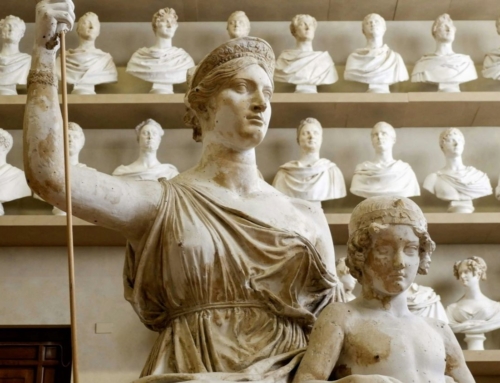Every Friday morning, all the year round, anyone who prays the Liturgy of the Hours recites the words attributed to King David—which he is said to have penned when repenting of his sin with Bathsheba. Psalm 51 famously begins with the plea, “have mercy on me God in your kindness, in your compassion blot out my offense.” It has been set to music hundreds, if not thousands of times in the history of the Church, usually under its Latin title, the Miserere. Many lines from the psalm are well-known, especially the image of asking to be washed “whiter than snow.” Shortly after this well-known image, however, is a line which is less familiar. The penitent Psalmist gives a reason why God should grant his requests. The current translation of the breviary reads: “that I may teach transgressors your ways and sinners may return to you.”
Of course, it would be silly to understand this as a sufficient reason that would oblige God to forgive a repentant sinner. God is not dependent on us to teach his ways to transgressors or bring sinners to repentance. Indeed—as is clear in the case of King David, and is surely the case for every repentant sinner—it is God who, through various instruments, is the author of their repentance. He is the first mover in the order of their return to him.
Therefore it is useless for us to plead with God, “If only you’ll just forgive me one more time, then I’ll make it worth your while by keeping others from making the mistakes I did, or putting those who stray back on the straight and narrow.” We cannot bargain our way to forgiveness. God never owed us anything to begin with, and as sinners like the author of this psalm, we have nothing to offer God that we could barter for our forgiveness.Yet the God who moves us to repent in the first place has done so because he desires to forgive us more than we desire to be forgiven. And in forgiving us he also answers our petition to receive the “joy of his help” and be sustained with a “spirit of fervor” that we might teach transgressors his ways. In the position of being forgiven sinners, we now ought to be filled with “the joy of his help” and inspired to share that joy with all we meet. He sends us, and it is our happy duty to share the love we have received from him. Freely we have received and freely we should give (Matt 10:8).
The alternative is to be like the unmerciful servant in the parable who, after being forgiven the kind of debt that only the one percent could pay, chokes his coworker for a debt that’s only five figures. His obscene lack of mercy, compared to what he received, can only be accounted for by a lack of proper gratitude and joy at having been forgiven. And in lacking the joy, he has missed the mission to which he is obliged.
We, like the debtor and the Psalmist, are not simply to “forgive our debtors” that we might be forgiven our “debts.” Rather, overflowing with the joy of being forgiven and returned to life, we are to rejoice in sharing with others the forgiveness which we have received. And more than that, we are to gladly show transgressors that they might return to the One who has given us life and graciously made us agents to help rekindle life in others.
✠
Photo by Ben White on Unsplash







